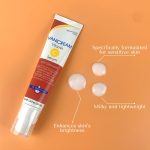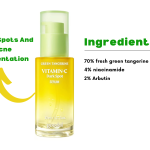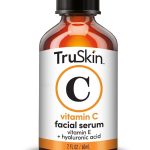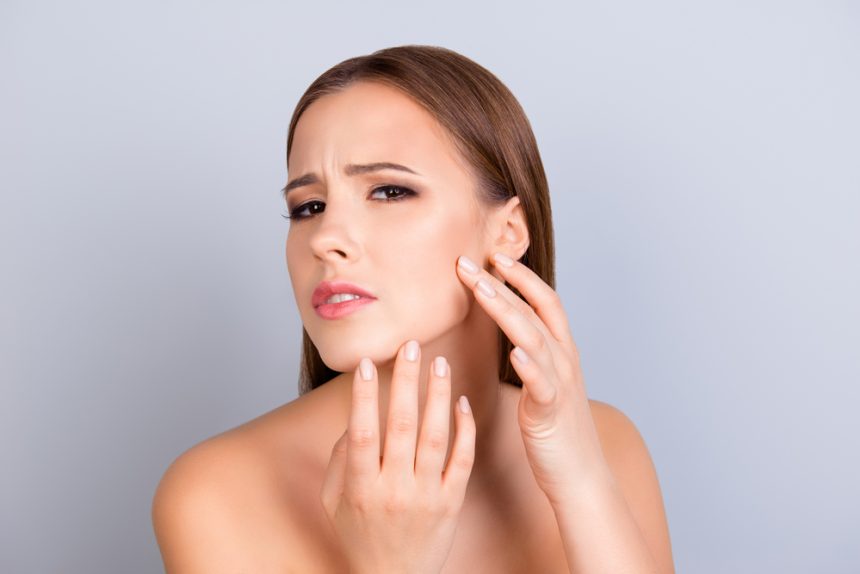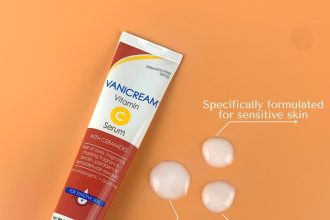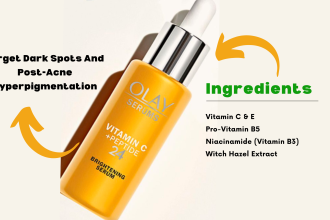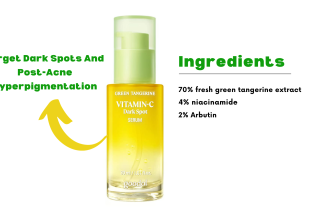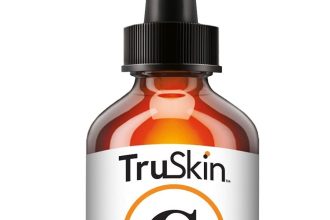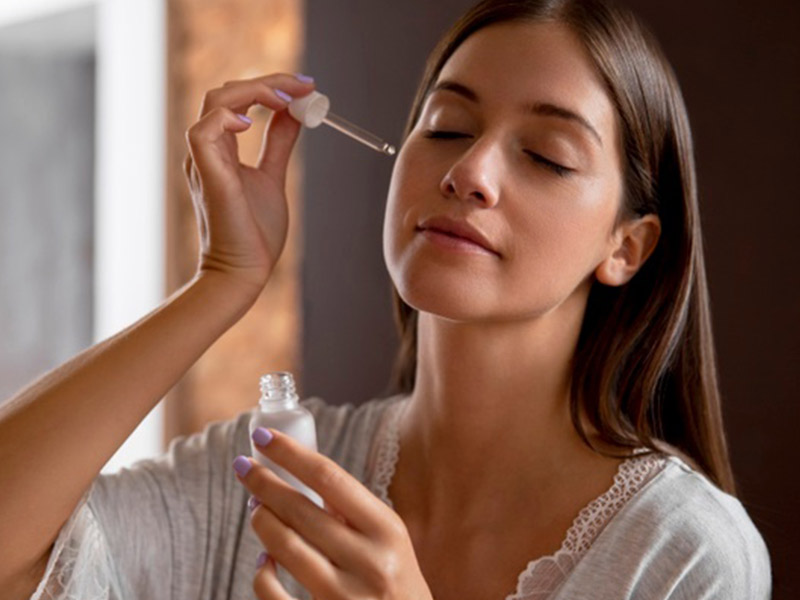Oily skin is a regular problem that can happen to people of all ages. This disease is caused by the skin making too much sebum, which is an oil that helps protect the skin. But too much sebum can cause pimples and pores to close up. Both oily skin and stress can make the problem worse. When you’re stressed, your body releases hormones that can make it make more grease. As a result, your face may make more oil, which could make breakouts more likely.

Symptoms of Oily Skin:
Most people have sticky skin that makes sebum. Stress makes these conditions worse. There are some key symptoms of oily skin and stress, including those that can be influenced by stress:
1- Greasy Skin:
Even after cleansing, oily skin looks shiny. The skin is oily and slick due to sebaceous gland overproduction. Stress hormones increase this greasiness.
2- Pimples:
Oily skin can get pimples. Sebum, dead skin, and bacteria clog hair follicles, causing pimples. Stress-induced sebum production can cause more frequent and severe breakouts.
Debunking the Top Myths About Oily Skin | 5 Myths – vitamincserum
3- Blackheads:
Blackheads, which are open comedones, are small dark spots on the face. Sebum and dead skin cells get into hair shafts and stop them from growing. Oily skin and stress can exacerbate the formation of blackheads by stimulating the sebaceous glands to produce more sebum.
4- Whiteheads:
Comedones that are closed up and look like blackheads are called whiteheads. They look like red bumps on the skin. Oily skin and stress can contribute to the formation of whiteheads by disrupting the normal balance of sebum production and skin cell turnover.
5- Enlarged Pores:
Pores are bigger on oily skin, especially on the nose, forehead, and cheeks. Excess oil can enlarge pores. Oily skin and stress can further impact pore size by influencing sebum production and skin elasticity.
Causes of Oily Skin

When sebaceous glands make too much sebum, it makes the face oily. Oily skin can be caused by your genes, your diet, and your stress level. To explain these reasons:
1- Genetics:
Oily skin is caused by genes. If your parents or close cousins have oily skin, you may get it too. Genes affect how much sebum is made by changing the size and activity of sebaceous glands. Therefore, individuals with a genetic predisposition to oily skin and stress are more prone to experiencing it, regardless of external factors like stress.
2- Hormones:
Often, hormonal changes are to blame for oily skin. Androgen hormones like testosterone cause sebaceous glands to make more sebum during puberty. Teens’ skin is often sticky. However, hormonal changes throughout life, such as during menstrual cycles or pregnancy, can also influence sebum production and contribute to oily skin and stress. Oily skin and stress can disrupt hormone balance, further exacerbating the impact on sebum production.
05 Best Affordable oily skin products for a budget-friendly routine
3- Diet:
The link between diet and oil production is still being looked into. People think that meals with a high glucose index make more grease. Fruits, veggies, whole grains, and healthy fats may help keep sebum production in check and improve skin. Oily skin may not be caused by diet alone, and how each person reacts may be different.
4- Stress:
Stress changes our bodies and face. Sebum production is affected by stress chemicals like cortisol. Changes in hormones caused by stress make more sebum, which makes oily skin worse. Stress breaks down the layer of the skin, making it more likely to get inflamed or have other skin problems.
Managing Oily Skin During Stressful Periods

It’s hard to deal with oily skin when you’re stressed, but it is possible with the right technique. Here are some ways to deal with oily skin caused by stress:
- Wash your face twice a day with a gentle cleaner that doesn’t contain oil. This cleans without drying out the face. Avoid strong cleaners that make skin dry out and make more oil.
- Use a toner for thick skin after washing to get rid of extra oil and dirt. Toners even out the pH, get rid of oil and dirt and shrink pores. You can use toners with witch hazel or salicylic acid.
- Despite what most people think, oily skin needs to be moisturized. For moisture, choose lotions that are light and don’t contain oil. Products that aren’t comedogenic won’t clog your pores.
- The dirt, germs, and oil on your hands can get into your pores and cause pimples. Do your best not to touch your face.
- Skin health depends on sleep. Stress, hormone changes, and oily skin can all get worse when you don’t get enough sleep. Sleep for 7–9 hours a night to make your skin look better and feel less stressed.
- Even if your skin is oily, fruits, veggies, whole grains, and lean meats can improve its health. Processed and greasy foods may make your body make more grease.
- Working out lowers stress, improves blood flow, and keeps hormones in balance. Exercise keeps sebum in balance and helps skin health, which makes the skin less oily.
By implementing these strategies, you can effectively manage oily skin and stress during periods, keeping excess oil at bay and promoting a healthier complexion.
Conclusion:
To control sticky skin when you’re stressed, you have to deal with both physical and mental issues. You can control your oily skin by following these tips. Take care of your face, deal with stress, and live a healthy life. Understanding the link between oily skin and stress and using these tips can help you keep your skin in balance when you’re stressed. Take responsibility for your skin care habits and your health.



